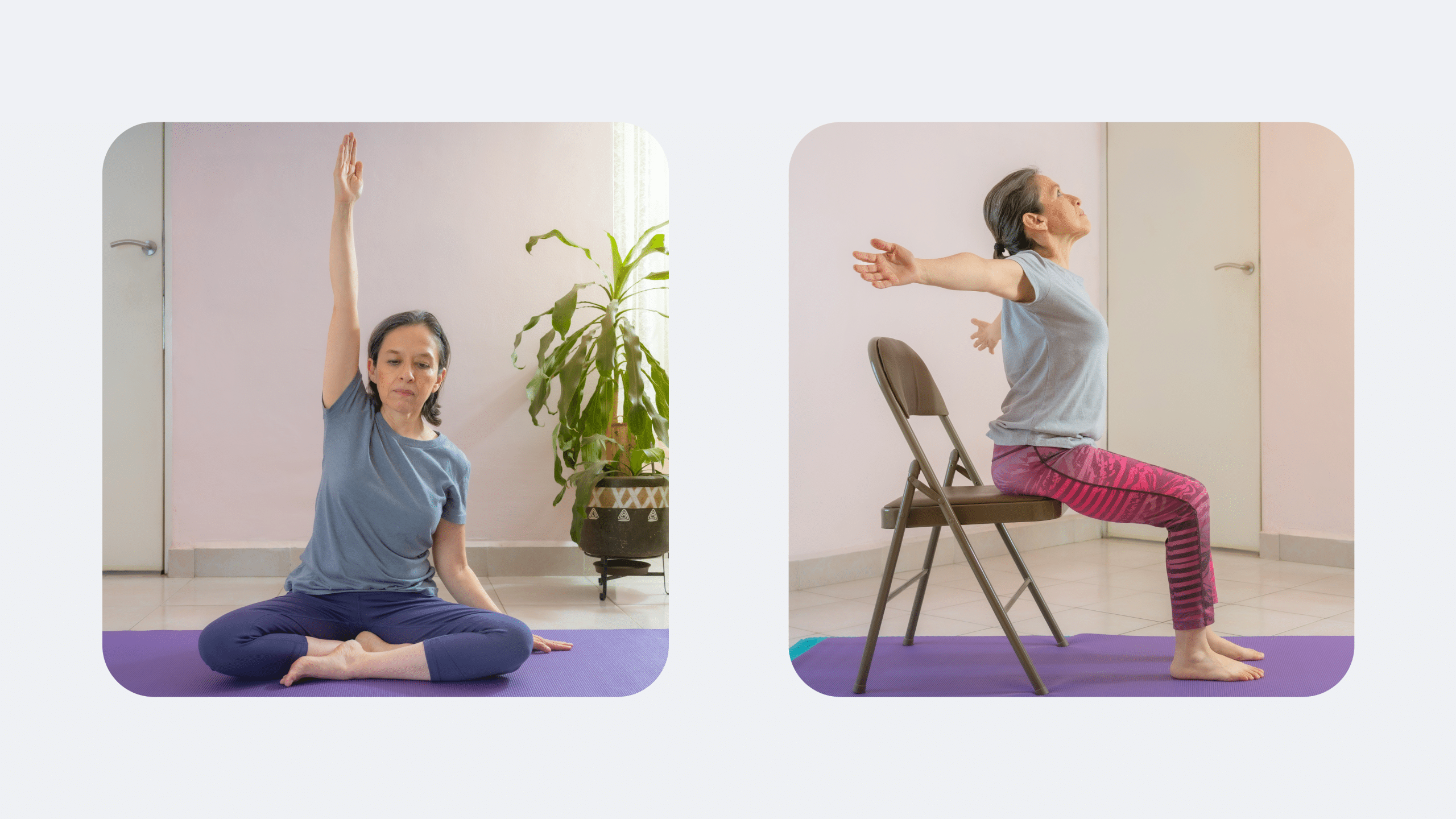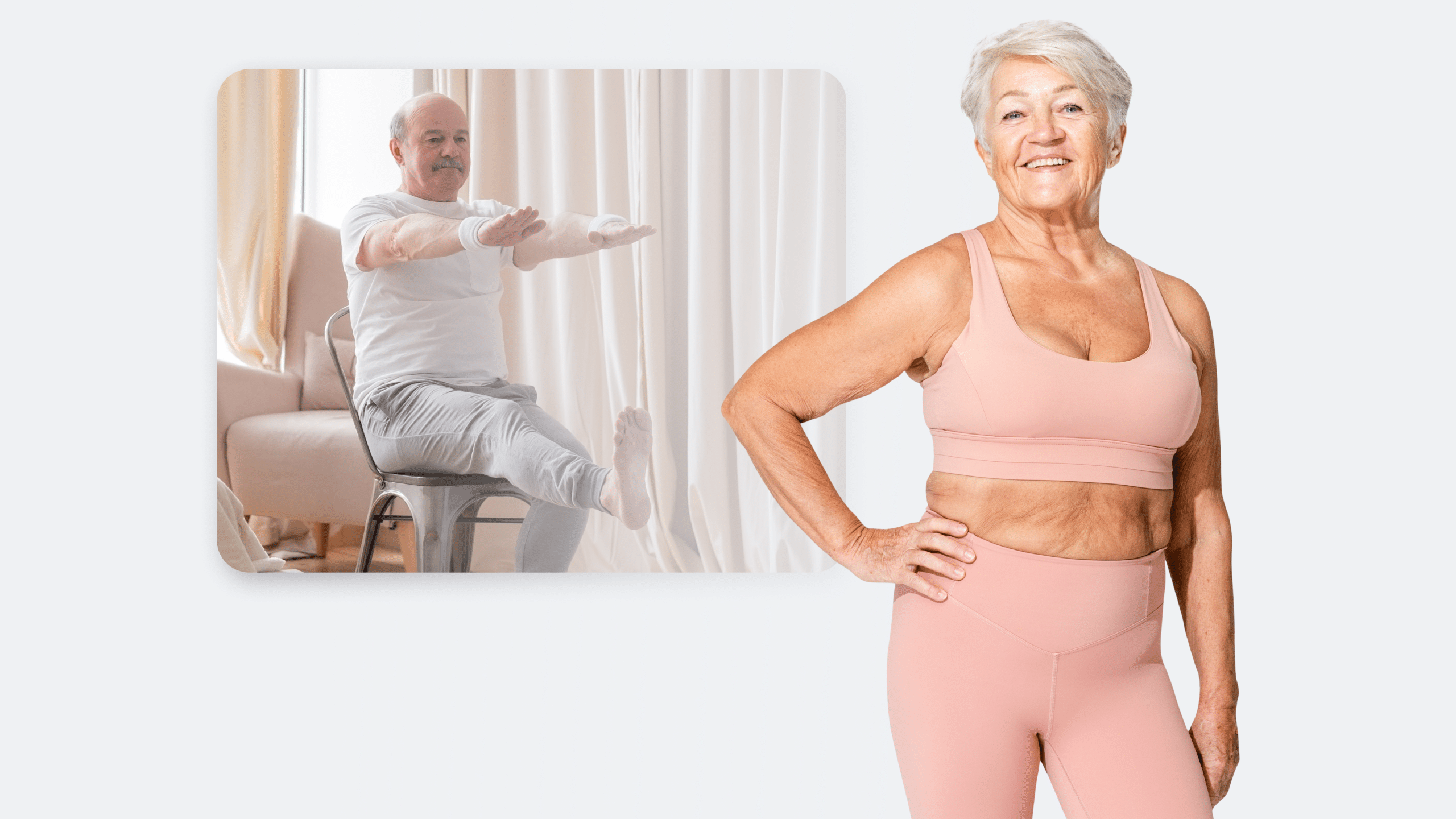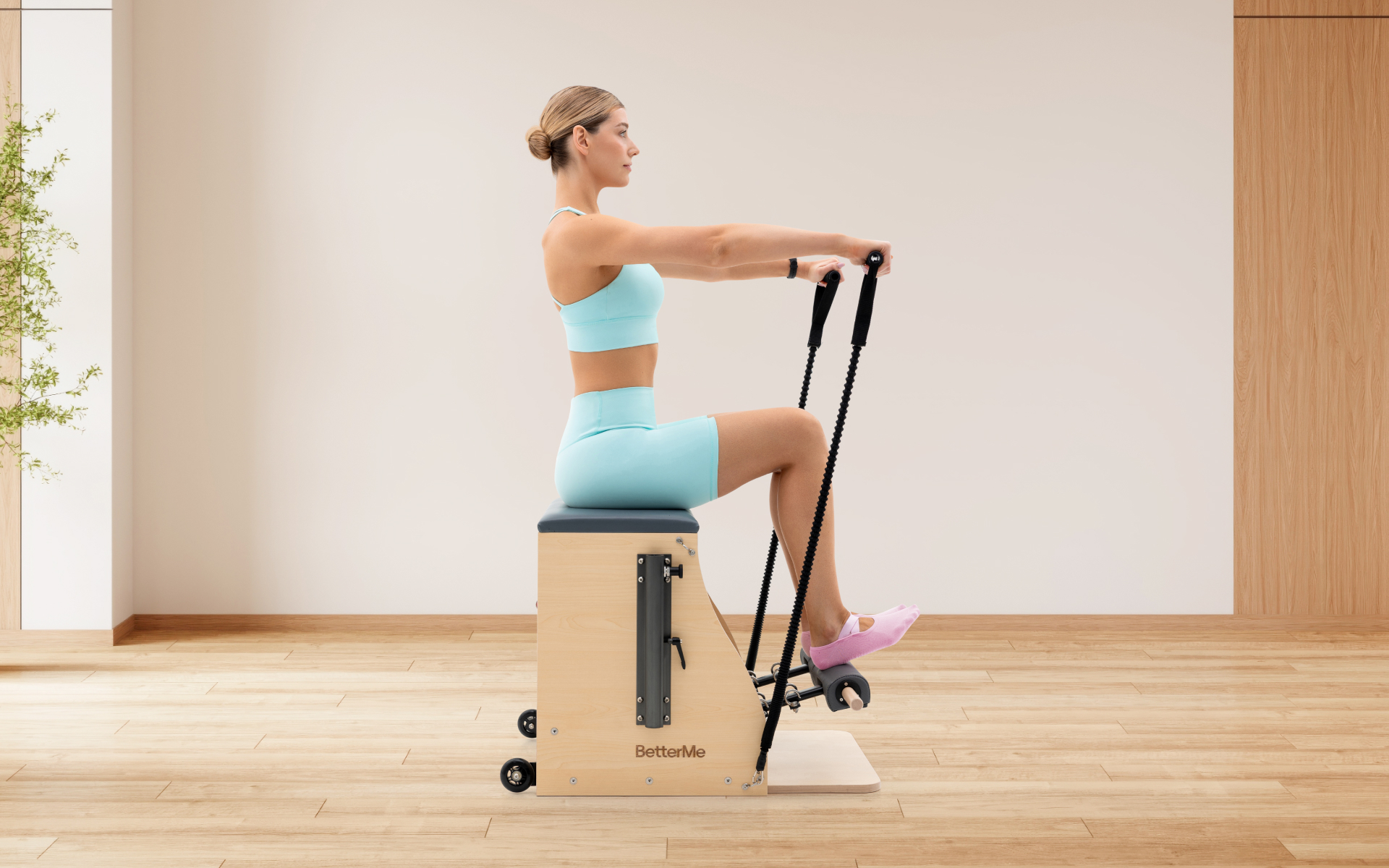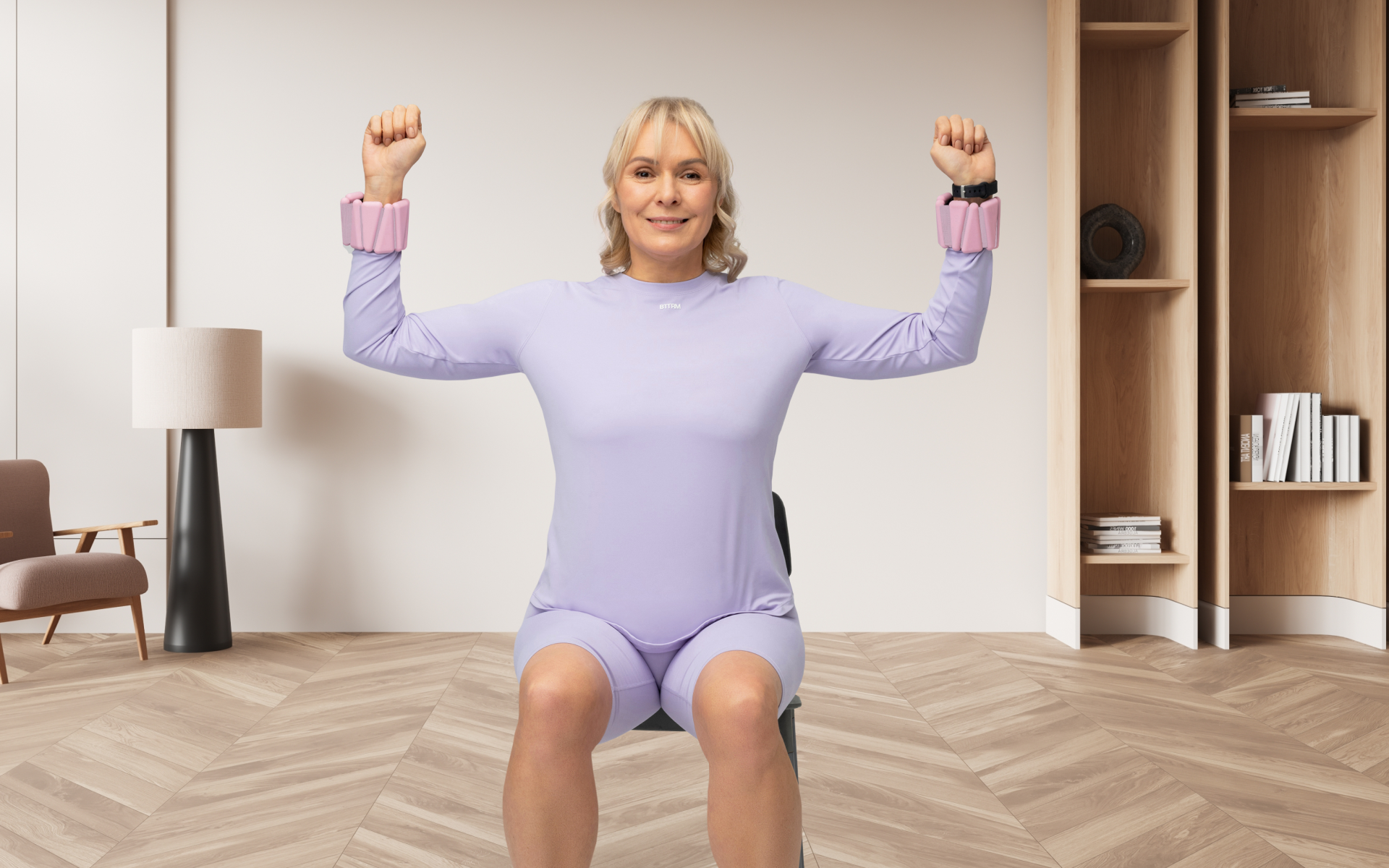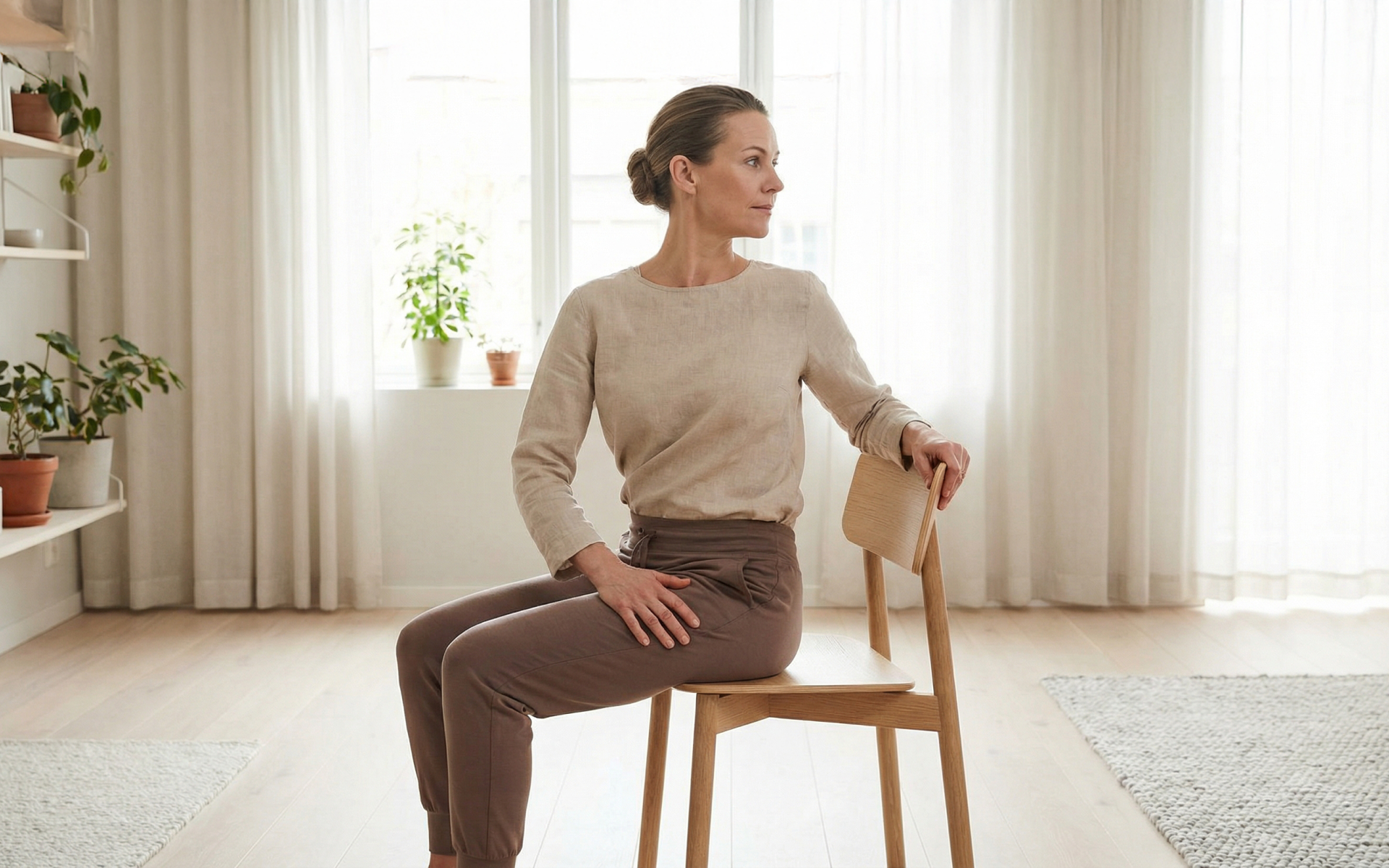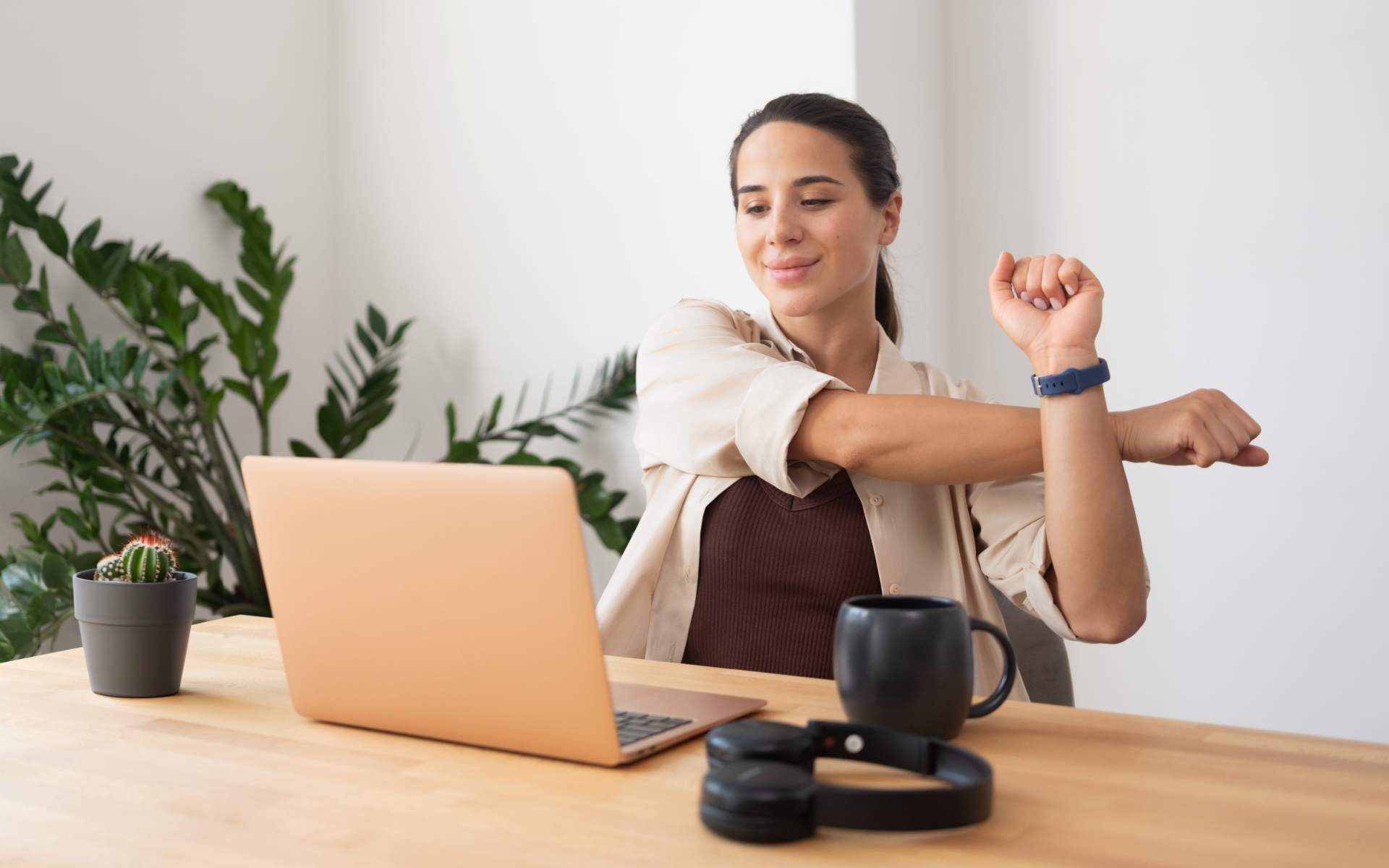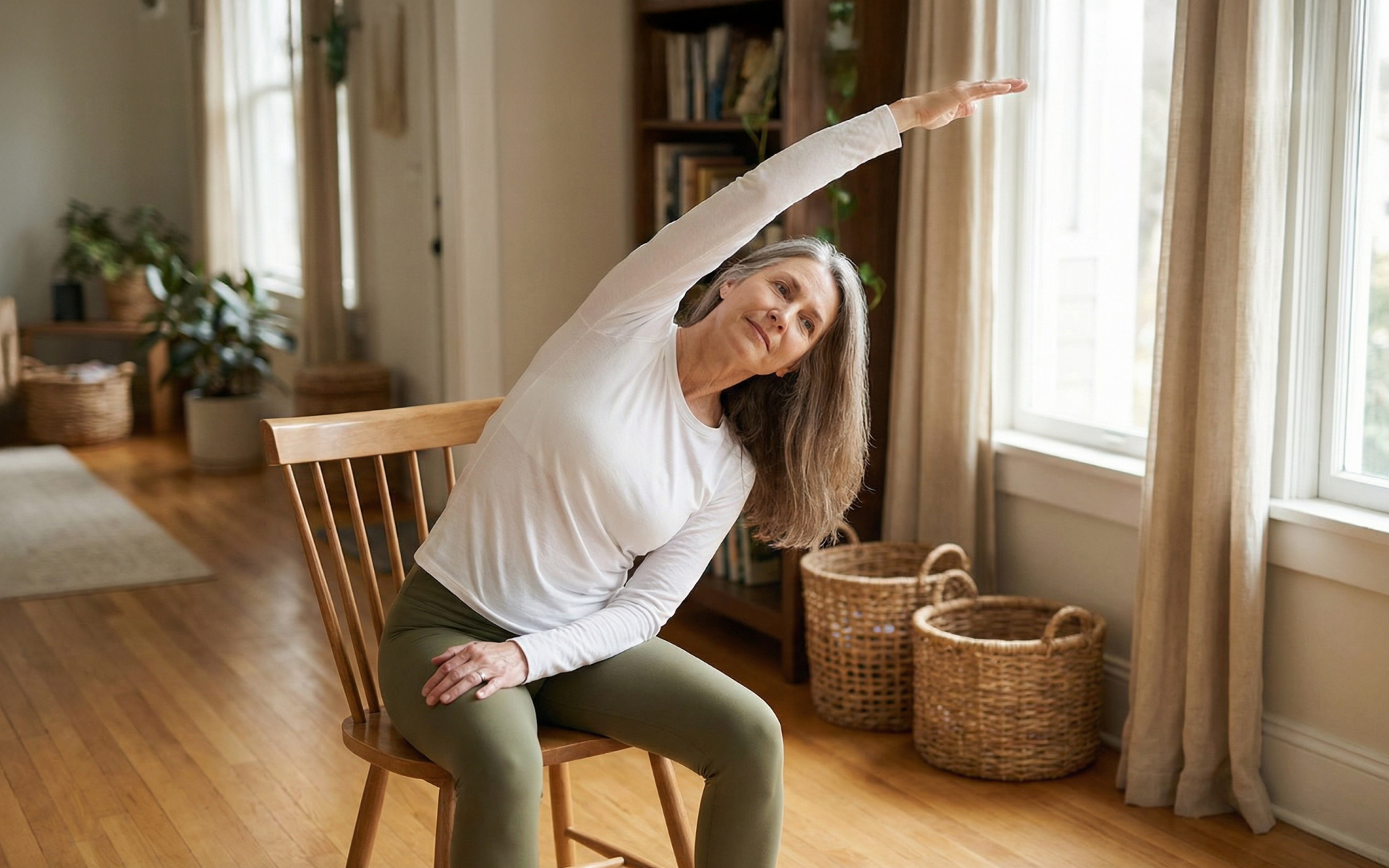As a practice, yoga has many benefits that could make your life better, healthier and more fulfilling. Unfortunately, the media tends to bombard us with some of the most impressive poses that make this practice look a little intimidating.
If you’ve ever wished to practice yoga but then looked at yogis online and flinched at the impossible flexibility and contortionist poses, then perhaps sitting yoga postures could be more your speed.
Unlike the images you see online, seated yoga poses do not require expert level flexibility to accomplish. Read on to learn more about seated yoga poses for beginners, how to do them and how they can improve your health and life.
What Is Seated Yoga?
The definition of seated yoga is right there in the name. It is a gentle form of yoga that is done while sitting down either on a chair or on a mat on the floor. While seated yoga – also sometimes referred to as chair yoga – might not be the standard practice, it helps make this practice more accessible.
As stated above, most popular yoga poses demand incredible flexibility to perform, something that most beginners, persons with mobility issues from injury or disability or seniors cannot do. Seated yoga stretches for beginners and seniors offer a more gentle and easier starting point.
The Benefits Of Chair Yoga For Men, Women & Seniors
Perhaps the biggest benefit of doing seated yoga stretches as opposed to traditional yoga stretches is better balance.
A lot of yoga asanas are usually done standing up and if you do not have a lot of core strength or if you are an older adult with balance problems, you can find said poses to be intimidating. The use of a chair – or sitting directly on the ground – eliminates the fear of falling, thus helping you accomplish the moves easily.
Aside from the decreased risk of falling over, seated yoga stretches have the same mental, physical and therapeutic benefits as traditional yoga. Research on this practice shows that those who engage in this practice report (1, 2)
- Enhanced muscular strength and body flexibility
- Better respiratory and cardiovascular function
- Improved self esteem
- Faster recovery from and successful treatment of addiction
- Reduced stress, anxiety, depression, and chronic pain
- Improved sleep patterns and sleep quality,
- Development of positive personality traits
- Enhanced overall well-being and quality of life
Uncover the surprising benefits of chair yoga for men in our past article.
How To Do A Seated Pose
There are tens of seated yoga poses that you can do, all requiring your body to be in different positions to correctly complete them. However, two main things you should know before getting into yoga chair exercises for seniors or beginners are these:
- If you choose to do this exercise on the floor – Always sit on a yoga or exercise mat. Sitting directly on the cold hard floor could hurt your butt as it’s not very comfortable. Having some sort of cushioning between you and the floor is always preferable and can allow you to complete the exercises for a longer period of time
- If you choose to use a chair while doing seated yoga stretches – Find a sturdy chair without wheels or arm rests. The chair in question should also be fit to your height – meaning that while seated, your feet should rest comfortably on the ground with your hips being slightly higher than the knees.
Be sure to place the chair on a stable surface like carpet or exercise mat to keep it from slipping
Once this is figured out, you can move on to doing some sitting yoga poses for better flexibility and the potential for improved mental health.
If you’re curious about seated yoga poses for glutes, check out our earlier article
What Are The Five Sitting Asanas?
There are definitely more than five sitting asanas in yoga. However, for a beginner, starting off with just five simple poses is a good way to familiarize yourself and your body with this practice.
Below are some yoga sitting poses with names in romanized Sanskrit and instructions on how to do each one. These can be taken as seated yoga poses for seniors and for other beginners to yoga regardless of age.
Read more: Beginner Friendly Seated Yoga Poses To Try Today
Easy Pose (Sukhasana)
Like the name suggests, this is the easiest of the poses. Sukhasana is a pose that is often seen and used in meditation practices. It acts as a hip opener and can also enhance flexibility, posture and relaxation.
Here’s how to do it
- Sit on the mat in a cross-legged position. Tuck each foot under the opposite leg or widen your knees and take one foot close into your groin and the other foot just in front of it so your heels line up.
- Place your hands on your thighs or knees as per your comfort and remember to keep your back and shoulders straight and to bend your elbows
- Close your eyes, keep breathing and think about something pleasant
- Hold the pose for up to 60 seconds (or longer if desired) before moving on to the next pose
Butterfly Pose (Baddha Konasana)
Like the easy pose, the Baddha Konasana asana is super easy to do. Also known as the ‘bound angle pose’ or the ‘cobbler pose’, this is a classic hip opener that is recommended to anyone with tight hips. It is especially important for those who spend a lot of time seated or anyone warming up for some high intensity workouts.
Here’s how to do it
- Sit comfortably on a mat with your legs stretched in front of you
- Gently bend both knees till the soles of your feet are pressed together. Drop your knees out to the sides
If you were in easy pose, simply remove your feet from under the legs, bring them forward while widening your hips till the soles of the feet touch. Don’f forget to drop the knees out to the sides
- Bring both hands to your feet, place them under the feet and then interlace the fingers to keep them there. You can also simply place your hands on the ankles or shins if you cannot comfortably reach the feet.
- On an inhale, lengthen the spine and broaden your chest by drawing your shoulders down and back.
- Hold this position for up to 2 minutes.
If you’ve mustered up the courage to crush your weight loss goal, let Betterme take the sting out of this demanding process. Our app will help you restructure your habits, remold your life and crank up your fitness results!
Half Spinal Twist (Aradha Matsendrasana)
Also known as half lord of the fishes, this pose is said to help open the chest and shoulders, strengthen the spine and increase flexibility by stretching the outer hips and thighs.
Here’s how to do it
- While still in easy pose described above, extend the right leg straight out in front of you, uncross the left leg and then pass it over the right leg, placing the left foot flat on the floor close to the right knee.
- Take your left hand and place it directly behind you.
- Wrap the right arm around the left knee and pull the knee in towards your chest. Press down through your hips and up through the crown of your head to lengthen the spine
- Hold this position for up to 60 seconds and switch sides.
- Remember to keep breathing and keep the core engaged throughout.
Seated Side Bend Pose (Parsva Sukhasana)
This asana is said to help open up the hips, improve spinal mobility and stretch the obliques, lats and shoulders.
How to do it
- Get back into easy pose described above with your legs crossed and back straight
- Take the right hand and place it on the floor. If you place your palm close to you make sure to slightly bend the elbow but if your palm is on the ground, further away from the body, keep the elbow straight.
- On an inhale reach your left arm up and overhead. Exhale and lean your body over to the right side.
- Hold the pose for up to 60 seconds then switch sides and repeat.
Seated Forward Fold (Paschimottanasana)
This is also known as a seated fold or a seated forward bend. Here’s how to do it
- Sit up straight with your legs stretched in front of you and your arms on either side of your body
- Inhale and lift both arms to the ceiling
- On an exhale, rotate your pelvis and fold your torso over your legs.
- Come down as far and as close to your legs as you can. Be sure to keep your back flat. If you notice a rounding of the spine/back, start and adjust the position.
- If your stretched arms can reach your legs without discomfort or rounding of the spine, go ahead and hold on to the legs for extra support.
Ps. If you cannot hold on to the legs because you aren’t flexible enough, use a yoga strap or some resistance bands. Place the strap around the bottoms of your feet and hold on to an end with each hand.
- Remember not to push yourself too much as you could injure your back while trying to push your torso down onto your legs. Work with the flexibility that you currently have. Overtime and with consistency, you are likely to push as far down as you want without difficulty.
This is a good stretch for the back of the body, specifically the hamstrings, calves, glutes and back muscles.
Ps. If you are looking for seated yoga stretches using an actual chair, the BetterMe App is a great chair yoga app to use. The app offers not only seated yoga stretches for beginners and seniors, but also a 28 day chair yoga challenge that will do wonders for your mental health and flexibility.
Read more: Chair Yoga Benefits: 8 Reasons Why You Should Do Seated Exercises
FAQs
What Is The Seated Side Stretch In Yoga Called?
This is also known as the seated side bend or Parsva Sukhasana and steps for doing it have been described above.
How Many Seated Yoga Poses Are There?
There are dozens of seated yoga poses to choose from. If you are unsure where to start, we suggest starting with the above five. Once you’ve mastered these, try looking up some basic beginner seated yoga with pictures of asanas. This can help you determine which poses are easy for you and you can try them out as you build up your flexibility to do more advanced asanas.
Who Is The Father Of Yoga?
Yoga is a practice that has been around for over 5000 years and has gone through many changes with many yogis being touted as experts of the practice so it can be hard to say who is the father of the traditional practice (3, 4).
However, the Hindu author, mystic and philosopher Maharishi Patanjali is touted as the father of modern yoga as he is the one who compiled and refined various aspects of Yoga that we see and use in this practice today (5).
Is Sitting Yoga Style Good For You?
There are no scientific studies that state whether sitting ‘yoga style’ is good or bad for you. If you find sitting like this to be comfortable, then there is likely nothing wrong with doing so. But if you feel some discomfort, it is best to change your sitting style.
Which Yoga Is Best For Sleep?
For years, research has shown that yoga is great for the treatment and management of sleep problems among people of all ages (6, 7, 8). But which poses work best for sleep? According to Harvard Health, restorative yoga poses like child’s pose, reclining bound eagle pose, legs up the wall and corpse pose could do the trick (9).
The Bottom Line
As demonstrated above, seated yoga stretches are among the easiest asanas in this practice. If you are a beginner or in charge of an older adult and you’d like them to be more active, try some sitting yoga postures. As always, remember not to push too much beyond your limits. It’s good to challenge yourself, but overdoing it will only lead to harm. Be careful and have fun!
DISCLAIMER:
This article is intended for general informational purposes only and does not serve to address individual circumstances. It is not a substitute for professional advice or help and should not be relied on for making any kind of decision-making. Any action taken as a direct or indirect result of the information in this article is entirely at your own risk and is your sole responsibility.
BetterMe, its content staff, and its medical advisors accept no responsibility for inaccuracies, errors, misstatements, inconsistencies, or omissions and specifically disclaim any liability, loss or risk, personal, professional or otherwise, which may be incurred as a consequence, directly or indirectly, of the use and/or application of any content.
You should always seek the advice of your physician or other qualified health provider with any questions you may have regarding a medical condition or your specific situation. Never disregard professional medical advice or delay seeking it because of BetterMe content. If you suspect or think you may have a medical emergency, call your doctor.
SOURCES:
- Exploring the therapeutic effects of yoga and its ability to increase quality of life (2011, ncbi.nlm.nih.gov)
- Perceived benefit of yoga among adults who have practiced yoga for a long time: a qualitative study (2023, bpsmedicine.biomedcentral.com)
- Explore The Ancient Roots of Yoga (n.d., artsandculture.google.com)
- A century of ‘The science of yoga’ (1921–2021): Revival, renewal and renaissance (2023, ncbi.nlm.nih.gov)
- About Yoga (n.d., indianembassywarsaw.gov.in)
- Wellness-Related Use of Common Complementary Health Approaches Among Adults: United States, 2012 (2012, nccih.nih.gov)
- Impact of long term Yoga practice on sleep quality and quality of life in the elderly (2013, ncbi.nlm.nih.gov)
- The effect of yoga on sleep quality and insomnia in women with sleep problems: a systematic review and meta-analysis (2020, bmcpsychiatry.biomedcentral.com)
- Yoga for better sleep (2020, health.harvard.edu)

